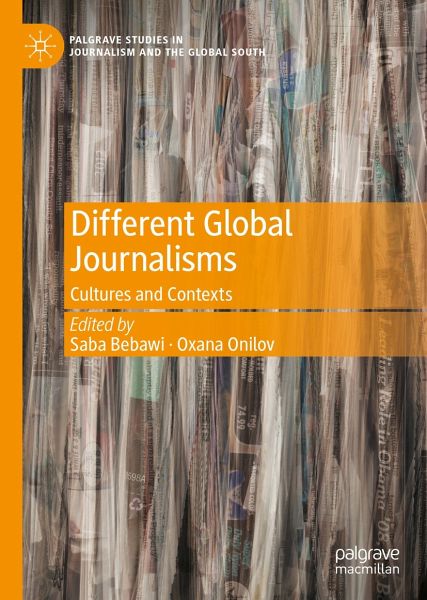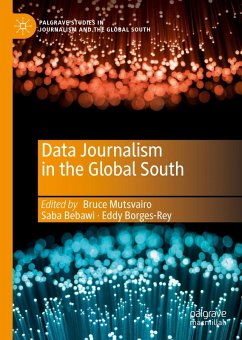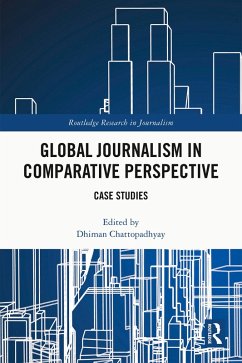
Different Global Journalisms (eBook, PDF)
Cultures and Contexts
Redaktion: Bebawi, Saba; Onilov, Oxana
Versandkostenfrei!
Sofort per Download lieferbar
104,95 €
inkl. MwSt.
Weitere Ausgaben:

PAYBACK Punkte
52 °P sammeln!
This edited collection seeks to better understand how journalism across cultures differs, presenting an in-depth exploration of global practices that departs from the typical Western-centric approach. Journalists across the world are trained, generally speaking, within Western models of reporting and are taught to do so as a practice where reporters need to aspire and aim for. Yet what such training is short of achieving is teaching reporters how to 'do' journalism within their own environments. In turn, what is required is a method of journalistic training and practice that is reflective of ...
This edited collection seeks to better understand how journalism across cultures differs, presenting an in-depth exploration of global practices that departs from the typical Western-centric approach.
Journalists across the world are trained, generally speaking, within Western models of reporting and are taught to do so as a practice where reporters need to aspire and aim for. Yet what such training is short of achieving is teaching reporters how to 'do' journalism within their own environments. In turn, what is required is a method of journalistic training and practice that is reflective of the actual practice reporters encounter on the ground. In order to do so, a better understanding of how journalism is practised in different parts of the world, the context surrounding such practices, the issues and challenges associated, and the positive practices that Western journalism can offer, is necessary. Promoting and deploying a culturally-specific and politically-relevant journalism, this book provides just that.
Dieser Download kann aus rechtlichen Gründen nur mit Rechnungsadresse in A, B, BG, CY, CZ, D, DK, EW, E, FIN, F, GR, HR, H, IRL, I, LT, L, LR, M, NL, PL, P, R, S, SLO, SK ausgeliefert werden.












